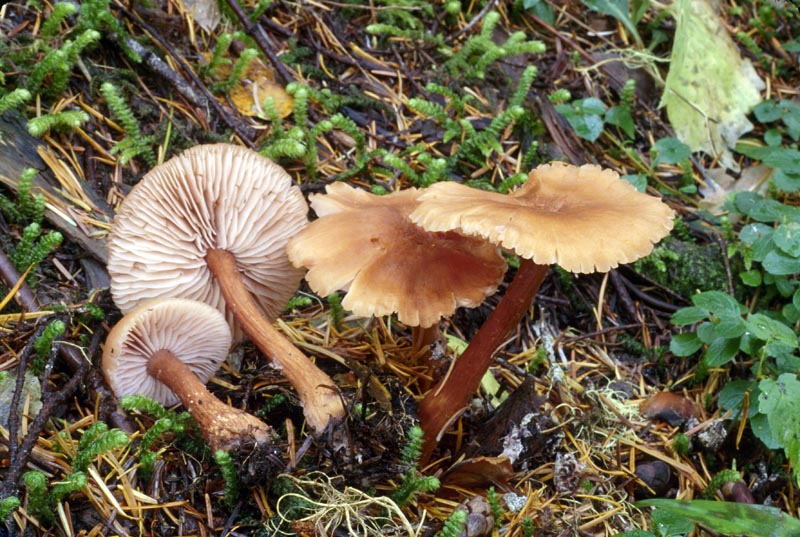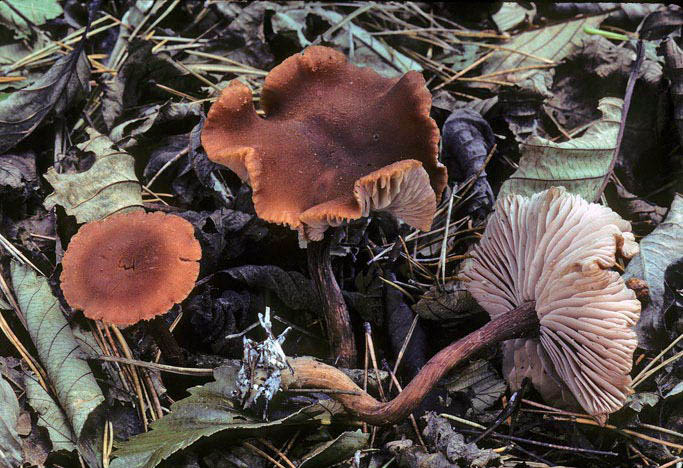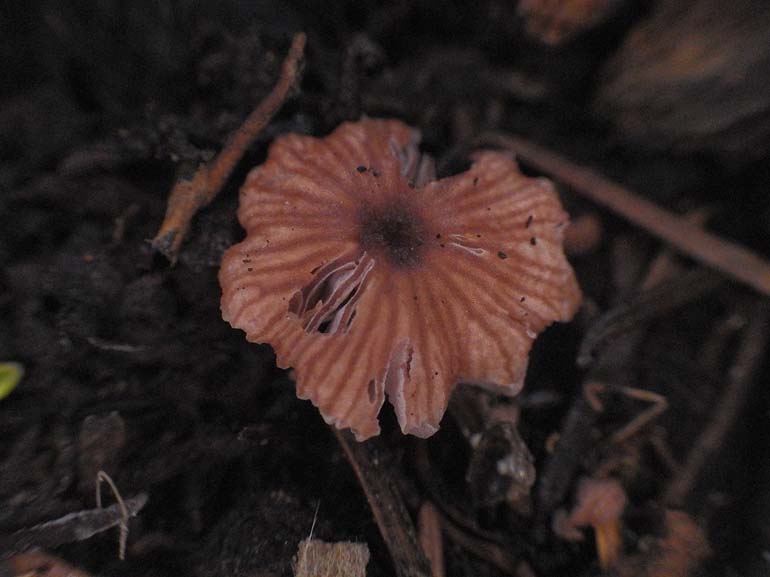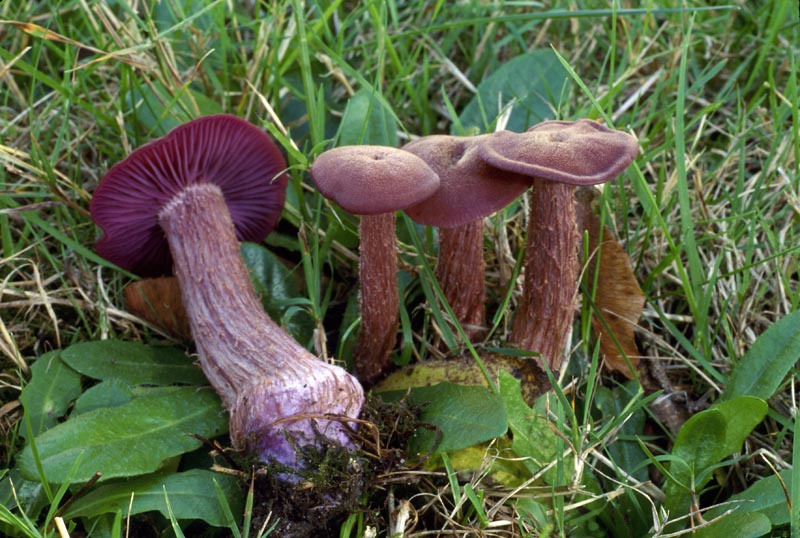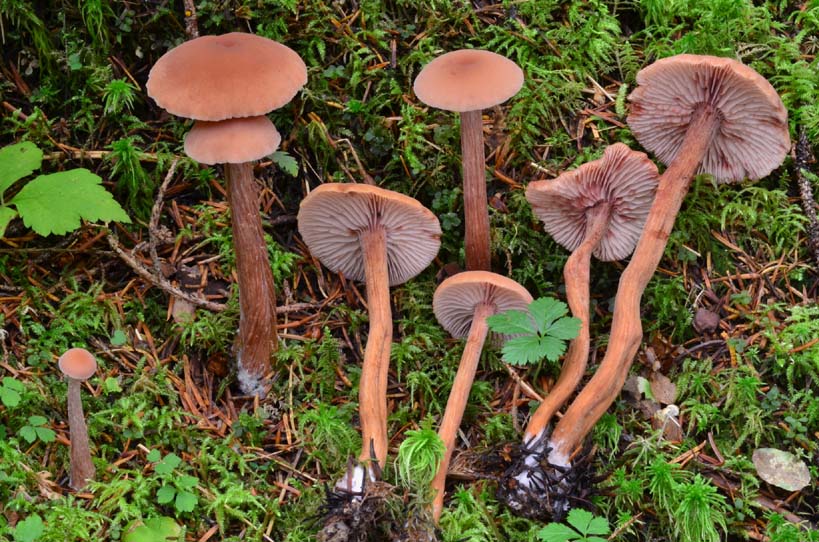Related to the dark spored mushrooms, these probably represent
another group of mushrooms that lost their spore colour. They are recognized by
their white spores and waxy-looking, well spaced gills that make
you think of the waxy caps. The caps are
dry, somewhat hygrophanous and minutely scaly
which might
make you think of Lepiota, but the gills are
attached. The tough, rough fibrous stems
help identify them. They are also distinguished by spiny spores under the
microscope. Usually <5cm across, but some grow larger.
L. bicolor - orange, often with a hint of
purple in the mycelium at the
base (shown here) or gills.
Otherwise mistaken for L. laccata grp. Faded L. a-o has brighter gills.
L. laccata - this group never has any lilac tones, orange, striate or not, <7cm.
L. proxima - never striate, may be
larger (<8cm)
L. montana/pumila - striate or not, mid to
high elevations only, <3cm.
L. tortilis - orange, the most
strongly pleated, small (<2.5cm).
L. amethysteo-occidentalis ("a-o") - purple, award winning
number of syllables. Fades to resemble L. bicolor, but gills will still
be brighter.
L. nobilis -
larger and scalier,
some purple tinges, otherwise much like L. proxima. High elevations.
